Investigation of wire and arc additive manufacturing methods for high integrity, high productivity fabrication of large steel structures.Research Students: REMS 2021
 Wael Nofal
Wael Nofal
Biography: Wael Nofal is a Chartered Mechanical Engineer specialising in structural mechanics. He received his BSc in Mechanical Engineering from Alexandria University, Egypt in 2003 and in 2015 attained his MSc in Oil & Gas Structural Engineering at Aberdeen University. He has spent the last 13 years in the Offshore Oil & Gas industry where he gained experience in the fields of transportation and installation of offshore structures, engineering consultancy for jack-up rigs and the design of offshore structures, with particular focus on substructures (jackets). Wael is an EPSRC funded student, enrolled in the EngD program at Cranfield.
Thesis title: Fleetwise Monitoring of Offshore Wind Turbines Support Structures through Adaptive Clustering
Project description: The use of sensors and condition monitoring (CM) technologies to collect continuous real time measurements on wind turbine foundations as a means of detecting the existence of damage, identifying the location of damage, assessing the type and severity of damage, and estimating the remaining useful life (RUL) has been significantly growing in recent years. Quite often, considerable errors are reported between the measured structural modal properties through inspection and the simulated results based on CM-base dataset due to various uncertainties. These uncertainties are usually related to design parameters, variable and complex offshore environments, complexity of the non-destructive testing (NDT) techniques, degree of detection of defects, etc. Neglecting the uncertainties involved in offshore wind structural monitoring may lead to collection of unreliable data and inaccurate evaluation of the system conditions, thereby inappropriate planning of inspection and preventative maintenance tasks.
This project will provide an analytical reliability model to identify, analyse and evaluate the impacts of different types of uncertainties on condition assessment and monitoring of wind turbine foundation based on its sensor system, damage sensitive parameters, damage identification techniques, and system reliability index. The model will be then tested on a baseline offshore jacket platform structure and the probability of detection (POD), rate of false positive, true positive, false negative, and true negative are assessed.
Academic supervisors: Prof Andrew Starr, Prof Feargal Brennan
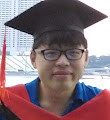 Kuen Wei Wu (Wayne)
Kuen Wei Wu (Wayne)
Biography: Kuen-Wei Wu obtained his BSc (2015) and MSc (2017) in Civil Engineering from National Chiao Tung University (NCTU), Taiwan, including an exchange to Nanyang Technological University (NTUsg), Singapore in 2015. He was a Summer Intern at the Railway Engineering Department at Sinotech Engineering Consultants in 2013. Prior to joining the REMS CDT programme, he worked on the monitoring of an offshore met mast in Changhua, Taiwan, under supervision of Prof. An-Bin Huang, and spent time at the Schofield centre, Cambridge University, developing a fibre Bragg grating (FBG) based miniature pore pressure transducer for geotechnical centrifuge modelling. He won the Master Thesis Award from Taiwan Geotechnical Society in 2017 and is an Honorary Member of Phi Tau Phi Scholastic Honor Society. Kuen-Wei is now a REMS CDT research student at Oxford with the support of Ørsted. His research interests include physical modelling and field testing for optimisation of offshore foundation design.
Thesis title: Rate Effects for Monopile Foundations
Project description: This research is focused on laboratory-scale physical modelling to understand the rate-dependent behaviour of monopile foundations, which are mostly used for offshore wind turbines in the UK and Europe. Previous research indicates that the strength properties of soil (e.g. shear strength, stiffness) are rate-dependent. In addition, from field pile tests, such as the award-winning project, PISA, rate effects are observed. Following this, Wayne’s project will provide high-quality data from model tests on the laboratory floor to help better understand and quantify rate effects for monopile foundation design. This project is funded by Ørsted.
Academic Supervisors: Prof Byron Byrne, Prof Guy Houlsby
Industry Supervisor: Amin Aghakouchak (Ørsted)
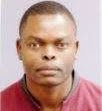 Osahon Ehigiator
Osahon Ehigiator
Biography: Osahon Ehigiator obtained his BEng in Mechanical Engineering from Ambrose Ali University, Nigeria. He worked in the oil and gas industry in Nigeria as a Maintenance Engineer and managed the repair and maintenance of seagoing vessels for marine logistics operations. He received his MSc in Welding Engineering from Cranfield University and has worked in the last four years as a Welding Engineer, with experience in the welding and fabrication of high integrity oil and gas components, utilised in the manufacture of subsea flow equipment. Osahon is currently a PhD research student, funded by the Materials, Modeling & Mechanical Technologies (3MT) Schlumberger, Houston.
Thesis Title: Investigation of wire and arc additive manufacturing methods for high integrity, high productivity fabrication of large steel structures.
Project Description: The application of Additive Manufacturing (AM) technology enables fully dense metallic components to be built, by successive depositions of weld metal. This research aims to leverage on some of the business drivers of this innovative technology including- reduction in manufacturing lead times, improved design flexibility, increased material utilisation and reduction in overall manufacturing cost. However, before this could happen, it is crucial to ensure that such components fabricated by this technique can meet or surpass stringent technical requirements demanded for use in subsea oil and gas environment.
Academic Supervisors: Dr Filomeno Martina, Dr Supriyo Ganguly
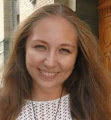 Sabina Aghasibayli
Sabina Aghasibayli
Biography: Sabina Aghasibayli is a Corrosion Control Engineer with a Chemical engineering (oil refinery) background. She obtained her MSc from the University of Manchester in 2016. Since graduating, Sabina was actively searching for an EngD project she would be passionate about so that she can enhance her knowledge in engineering as well as contribute to the field. In 2017 Sabina received funding from EPSRC and joined the REMS CDT program. For her thesis, she will be focusing on the corrosion aspects of the offshore renewable marine structures.
Current employer: Scottish Power
Thesis title: Corrosion Damage Effects on the Structural Integrity Assessment of Offshore Structures
Project description: An important issue to be considered in the structural integrity assessment of offshore structures, such as offshore wind turbines and Oil & Gas pipelines, is the characterisation of material degradation due to environmental damage and its subsequent effects on the remaining lifetime predictions. The main aim of this project is to investigate the importance of corrosion and corrosion-fatigue damage in the structural integrity assessment of offshore steel weldments (i.e. base metal, heat affected zone and weld metal) using experimental testing and numerical modelling techniques. S355 structural steel weldments, which are widely used in offshore industry, will be exposed to different corrosive environments for various durations and the corresponding changes in the mechanical response, fracture and fatigue crack growth behaviour of the material will be examined. Furthermore, a numerical model will be developed and validated to predict corrosion pitting, corrosion weight loss and corrosion-fatigue crack growth behaviour in S355 weldments in the seawater environment.
Academic supervisors: Prof Feargal Brennan
 Ali Marjan
Ali Marjan
Biography: Ali is an industrial engineer with 3 years’ experience in the industry. He obtained his BEng (Hons) in Aerospace Engineering from Institute of Space Technology, Pakistan. Ali obtained his MEng in Industrial Engineering and Management from Politecnico di Torino, Italy and did his research work at Norwegian University of Science and Technology. Ali is now part of the fourth cohort of the REMS CDT Engineering Doctorate program and is funded by the Merit Scholarship of Punjab Educational Endowment Fund (PEEF).
Thesis title: Assessment of support structures of offshore wind turbines for lifetime extension
Project description: The operation and maintenance (O&M) costs for the offshore wind turbines are usually 25-30% of the total life-cycle costs. So even a small saving have huge impact on the overall cost reduction. There is a need to move from traditional periodic maintenance towards advanced maintenance strategies. For this purpose, condition-based maintenance has gained significance to cut down O&M costs.
There are several discounted cash flow based maintenance models like RCM (Reliability Centred Maintenance) motivated but they presume fixed future cash flow scenarios and future conditions, while they ignore RUL predictions. This project will aim to incorporate PHM (Prognostics and Health Management) based maintenance, and further provide financial and managerial flexibility to the decision maker by adapting to future uncertainties. The uncertainties will be incorporated using stochastic modelling with the aim to simulate various predictive maintenance paths. The optimum O&M schedule under various uncertainties will then be selected based on the financial model.
Project Poster
Academic supervisor: Prof Phil Hart, Prof Ali Mehmanparast
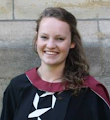 Emily Anderson
Emily Anderson
Biography: Emily is a Civil Engineer with a particular interest in offshore structures and sustainability. She graduated from the University of Bristol with an MEng in Civil Engineering with Study Abroad. Her final year focus involved assessing extreme loading on structures, specifically earthquakes, hurricanes and landslides, for developing countries. She is part of the DPhil program at Oxford in the fourth cohort and is funded by the EPSRC. She is particularly interested in applying recent technological developments in data capture and analysis to renewable energy structures to explore potential benefits to the sector.
Thesis title: Identification of Offshore Wind Turbine Foundation Properties from Monitoring Data
Project description: The objective of this project is to develop a framework which can infer the foundation properties of an offshore wind turbine (OWT) with monopile substructure from monitoring instrumentation data. There are two main motivations for this work. Firstly, to enable possible remote detection of various forms of foundation damage, for example scour. Secondly, to provide valuable insight into the complex behaviour of full-scale monopiles. This information could be used to improve the design and as-built assessment of these structures.
Academic supervisors: Prof Manolis Chatzis, A/Prof Ross McAdam
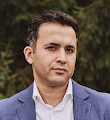 Ali Hamedany
Ali Hamedany
Biography: Ali is hydrodynamic/ structural engineer with over 10 years’ experience in offshore industry both oil& gas and renewable energies.
He obtained his master degrees in Marine and Offshore engineering from universities of Tehran and Technical university of Delft. Currently working as technical expert in KCI the Engineers. In the last couple of years, he was involved in some major offshore projects, like KOAMBO FPSO, Papa terra TLP and a concept design for an innovative soft yoke system. He start his EngD with interest in health monitoring systems and fatigue enhancement for offshore wind industry.
Thesis title: Investigating computational uncertainties and their effects on the fatigue life of Offshore Wind Turbine Foundations
Project description: Monopiles today make up over 80% of all offshore wind installations in Europe .While large monopile structures are, in the main, fabricated from welded steel tubular and plate sections similar to structural details commonly encountered in the Ship and Offshore Oil and Gas sectors, the design requirements differ significantly. This is due to harsh environmental aspects as well as the loading regime coupled with requirements for low CAPEX and OPEX. The aim of this project is to investigate computational uncertainties involved in the design process of monopiles and examine their effects on the fatigue life of OWT foundations.
Academic supervisors: Prof Ali Mehmanparast

